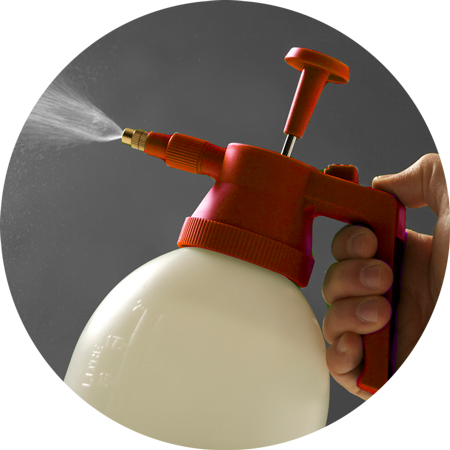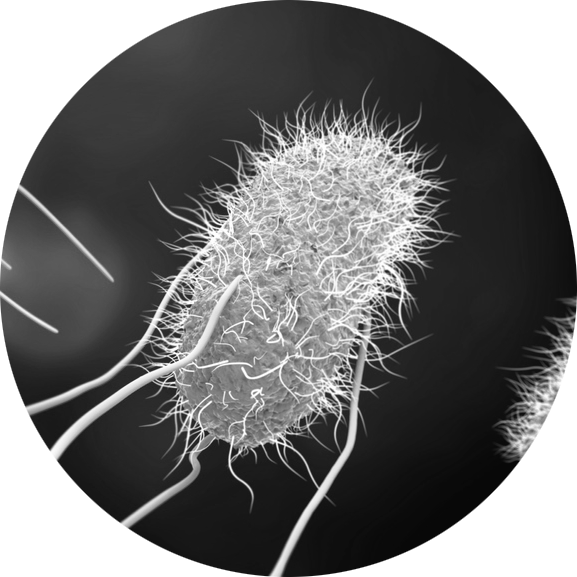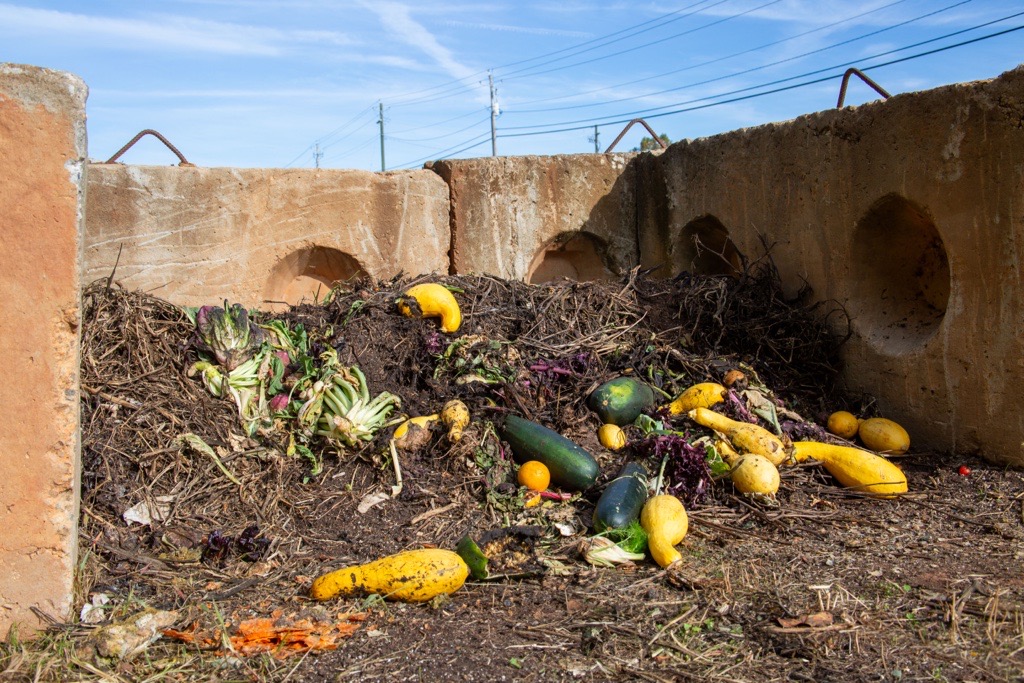Whether from a local store, regional supplier, or another farmer down the road, understanding where your soil amendments come from and how they were handled prior to reaching your farm or garden is necessary to ensure you are sourcing the highest quality product with the lowest amount of risk.
What are Soil Amendments?

Soil amendments include compost, manure, and other additives intentionally added to the soil (e.g., lime, fertilizer, etc.). Compost can include animal waste, grass clippings, leaves, wood chips, vegetative waste from produce packing or processing, leftover and expired foods from retail or food service, and spent grains from breweries.
What are the Benefits?
Soil amendments are additives that maintain and improve plant and soil health. Amendments can modify water and nutrient holding capacity, improve aeration, increase microbial diversity, and promote healthy root structures, all of which may promote long-term soil productivity.
What are the Potential Hazards?
If you do not properly vet your supplier and know the inputs, methods, and specifics of how they handled your soil amendments, you may introduce chemical, microbial, or physical hazards to your small farm or garden. Problems this may cause can include:
- Jeopardizing your certifications
- National Organic Program (NOP), Certified Naturally Grown (CNG), Good Agricultural Practices (GAPs), and other certifications have requirements regarding acceptable soil amendments. Materials that have been sprayed with or exposed to unapproved chemicals cannot be used.
- Spreading herbicides
-

Herbicides, which can be found on vegetative waste and in manures from animals that have consumed feed treated by herbicides, are mostly broken down by aerobic (oxygen-using) bacteria. In compost or manure piles where little oxygen is present, herbicides can break down slowly and harm plants when applied to the soil. Unfortunately, some herbicides may persist for years, even in properly composted material (Davis, 2009; Hagood et al., 2012).
- Spreading weed seeds
- Weeds and weed seeds can survive in manure, vegetative waste, and other incompletely composted material, which then can be spread to your fields (Grundy et al., 1998).
- Introducing foodborne pathogens
-

Human pathogens such as Salmonella and Escherichia coli O157:H7 can survive in manure, vegetative waste, and incompletely composted material and then be spread to your fields. These pathogens can contaminate fruits and vegetables, infect consumers, and result in foodborne illness. If using raw manure, the Food and Drug Administration (FDA) has no objection to growers following the NOP standards. These recommendations state that raw manure be applied no less than 120 days prior to harvest for crops where the edible portion contacts the ground, such as melons, leafy greens, and onions. For crops where the edible portion does not touch the ground, such as tomatoes, trellised vegetables, and tree fruits, raw manure should be applied no less than 90 days prior to harvest (Soil fertility, 2012).
- Introducing debris
- Foreign debris like glass, rocks, plastic, metal, and other physical hazards introduced to the soil could harm your workers and damage your equipment.
- Applying excess nutrients
- Nutrient imbalances or excesses can hinder plant productivity and have significant environmental impacts. A sample of any soil amendment of unverified nutrient composition should be tested by a lab for chemical analysis.

Compost often is used on small farms and gardens. You should ask your supplier:
- Do you use a scientifically validated composting method?
- Two composting methods recommended by the FDA to control human foodborne microbial hazards are (a) the aerated static pile method, which maintains a temperature of at least 131 °F for 3 consecutive days, or (b) a turned compost pile method, which maintains a temperature of at least 131 °F for 15 days (these do not need to be consecutive) and is turned at least five times during that time period.
- Do you take steps to prevent recontamination?
- Your supplier should be transporting and storing compost and other soil amendments to ensure they do not become contaminated. For example, tools that contact raw manure should be cleaned and sanitized before contacting finished compost. Finished compost should be protected from cross-contamination from raw manure piles, runoff, or animal intrusion.
- Do you have records for your inputs, method, and handling procedures?
- When you purchase compost from a supplier, you can ask what inputs they used and for a that shows that they used a scientifically validated composting method and handled it to prevent recontamination (Clements et al., 2019). Growers that must follow the FDA’s Produce Safety Rule must have these records included in their farm records (Standards for the growing, 2015).
Knowing the benefits and risks of your soil amendments and how to source them properly is critical to ensuring the safety and quality of the produce you grow on your small farm and garden.
References
Clements, D., Acuña-Maldonado, L., Fisk, C., Stoeckel, D., Wall, G., Woods, K., & Bihn, E. (2019). FSMA produce safety rule: Documentation requirements for commercial soil amendment suppliers. Produce Safety Alliance.
Davis, J. (2009). Herbicide carryover in manure and hay: Caution to organic farmers and home gardeners. North Carolina State University Mountain Horticultural Crops Research and Extension Center.
Grundy, A. C., Green, J. M., & Lennartsson, M. (1998). The effect of temperature on the viability of weed seeds in compost. Compost Science & Utilization, 6(3), 26–33.
Hagood, E. S., Hipkins, P. L., & Hipkins, P. A. (2012). Pyridine herbicide carryover: Causes and precautions. Virginia Cooperative Extension.
Soil fertility and crop nutrient management practice standard, 7 C.F.R. § 205.203 (2012).
Standards for the growing, harvesting, packing, and holding of produce for human consumption, 21 C.F.R. 112 (2015).
Billy Mitchell, graduate research assistant in the Department of Food Science & Technology, is a co-author of this publication.
Status and Revision History
Published on Oct 09, 2023
